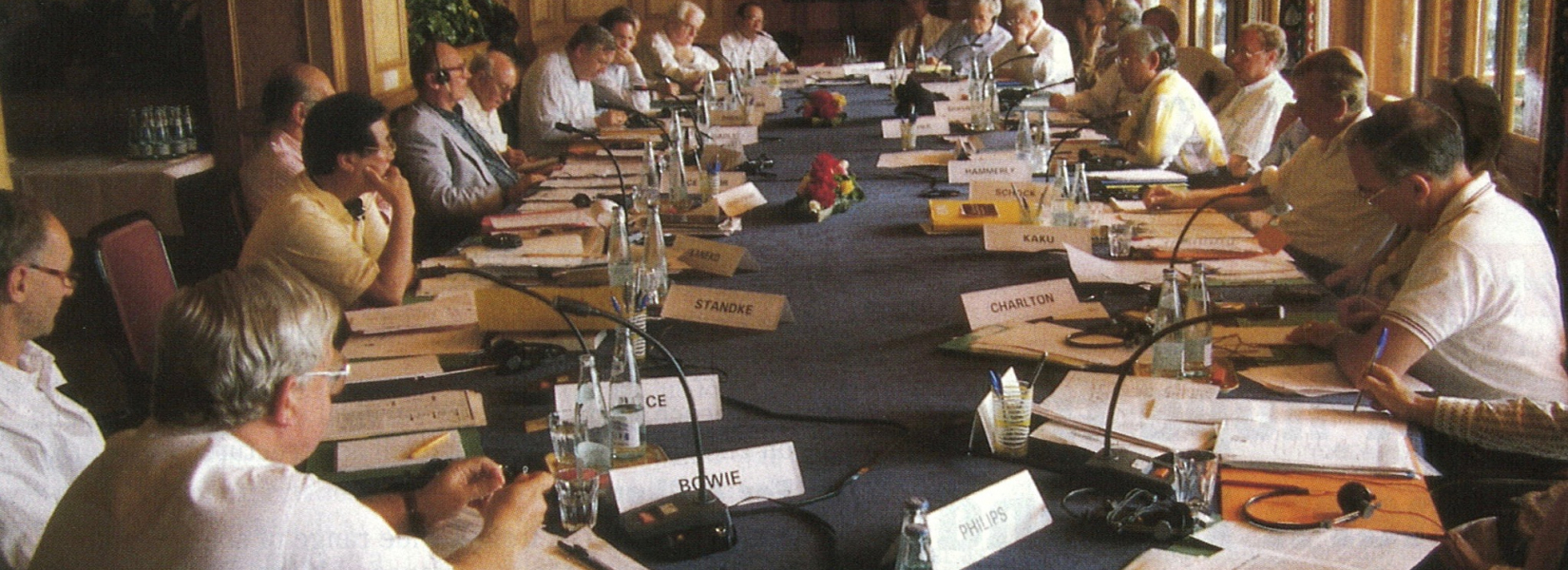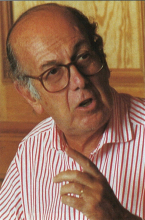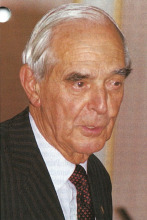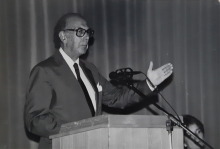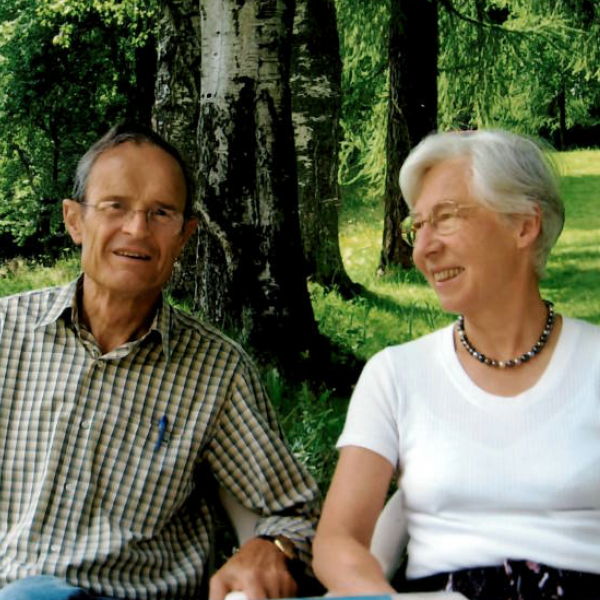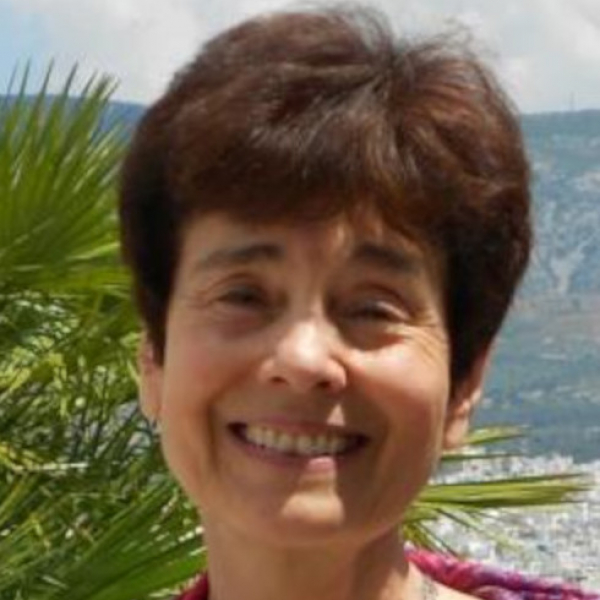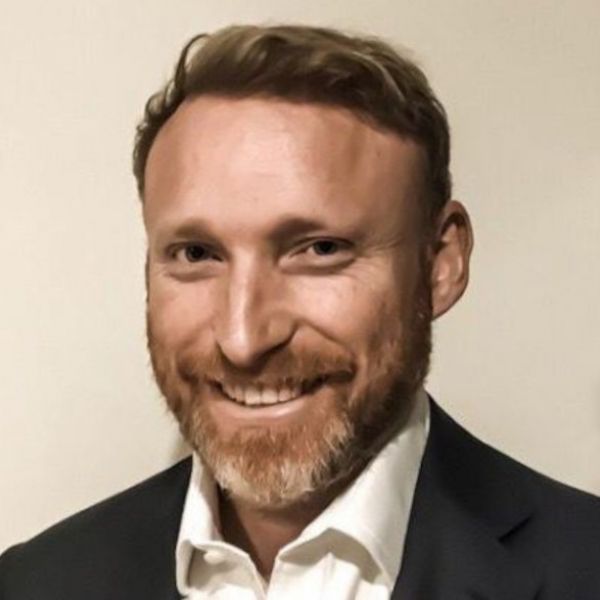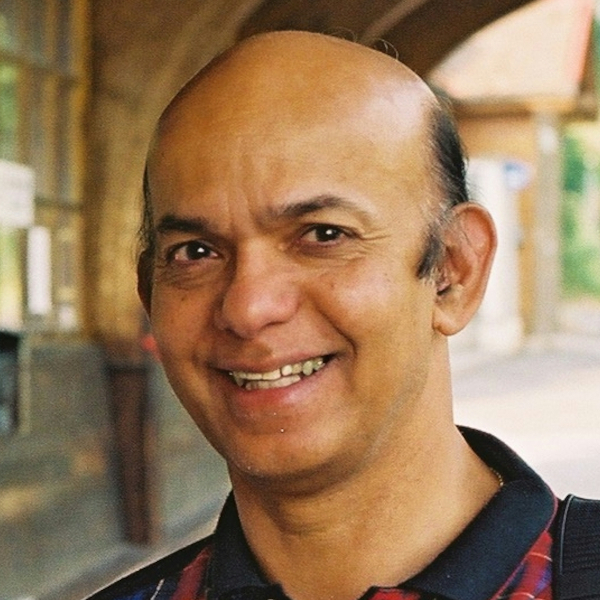
1994: The Caux Round Table – Principles for Business
By Maarten de Pous
30/09/2021
d'Estaing
In July 1994, a set of Principles for Business was launched at Caux by the Caux Round Table (CRT), an international forum of business leaders which had been meeting there since 1986.
The Principles were featured in The Financial Times, under the headline ‘The search for universal ethics’. The paper’s Management Editor, Tim Dickson, commented that it was possibly the first time that ‘a document of this kind has attracted influential supporters from Europe, Japan and the US’.
Nine years earlier, the chance of such common action seemed remote. In 1985 an article in a major Dutch newspaper, NRC Handelsblad, warned that Japan was going to ruin the European electronics industry, by offering their products way under the market value, in the same way as they had undercut the American automobile industry. It was headlined ‘The false smile of Japan’.
at the 4th Annual Caux Round Table Global Dialogues, 1989
Frits Philips, the former CEO of Philips Electronics, and Olivier Giscard d’Estaing, vice-chairman of the management institute INSEAD in France, had both been involved in the annual industrial conferences that had been held at Caux since the early 1970s. They were so concerned about the threat of trade war that they wrote to Japanese business leaders whom they had met at these conferences and invited them to meet informally with senior business leaders from Europe and America.
The Japanese responded positively and in the summer of 1986 a delegation arrived at Caux. It included the president of Canon, Ryuzaburo Kaku, the former president of Matsushita Electronics, Toshihiko Yamashita, and the publisher of the Japan Times, Toshiaki Ogasawara.
The first meeting of the 30 participants almost ended in disaster. The Japanese had been told that Caux was known for building trust and understanding, and for encouraging people to look for what is right rather than who is right. But the European and American participants were so frustrated about Japanese trade practices that they voiced their feelings in no uncertain terms. As is their custom, the Japanese participants listened, waiting patiently until they were given a chance to respond, but by that time they were so offended that they were in no mood to continue the session.
Caux was known for building trust and understanding, and for encouraging people to look for what is right rather than who is right.
Fortunately, during the lunch break it was agreed to try a new approach. The afternoon started in small groups, with the Japanese participants speaking first. The atmosphere improved and fruitful conversations continued for the rest of the two-day meeting. At the end, the participants agreed to meet annually in Caux.
Olivier Giscard d'Estaing (6th from the left), Frits Philips (8th from the left), Ryuzaburo Kaku (4th from the right)
These gatherings became known as the Caux Round Table Global Dialogues. Between them, smaller meetings took place in Japan, the US, Taiwan, Singapore, China, Mexico and various European countries, organized with the help of IofC colleagues in Japan and the US.
During these dialogues, it became clear that there was a need for business principles that would include the interests and responsibilities of all stakeholders.
There was a need for business principles that would include the interests and responsibilities of all stakeholders.
Using the Minnesota Principles (developed by the Minnesota Center for Corporate Responsibilty) as a useful base, the CRT drew up its own Principles for Business.
In the weeks following Tim Dickson’s article in The Financial Times, the CRT Secretariat in The Hague was inundated with orders for the Principles from business schools, company executives, news media and academics all over the world. As the European Coordinator of the CRT it was my (Maarten de Pous) task to respond to this avalanche of interest.
Later translated into 12 languages, the Principles laid an emphasis on identifying shared values, reconciling differing ones, and developing a ‘shared perspective on business behaviour acceptable to and honoured by all’. Tim Dickson wrote, ‘The Principles are said to be drawn from two ethical traditions: the Japanese philosophy of kyosei, described by Canon’s Ryuzaburo Kaku as “living and working together for the common good of mankind” and “human dignity” which refers to the sacredness or value of each person as an end, not simply as a means to the fulfilment of other’s purposes or even majority prescription.’
Businesses should protect.
In 1994, corporate social responsibility was already an accepted concept. But the Principles were specific about what it means for a business to go beyond shareholders’ interests towards those of all stakeholders: customers, employees, owners/investors, suppliers, competitors, communities. And they stressed that businesses should protect and, where possible, improve the environment, promote sustainable development, and prevent the wasteful use of natural resources.
Today the Caux Round Table continues as the Caux Round Table Japan and as the Caux Round Table for Moral Capitalism, based in the US. Initiatives of Change Switzerland continues to promote the heritage of the Caux Round Tables, supporting and hosting events on ethical leadership in business.
____________________________________________________________________________________________
As we were about to post this article, we received the sad news that Olivier Giscard d'Estaing, one of the co-founders of the Caux Round Table, had died at the age of almost 94 on 13 September 2021. He was a French businessman and politician, known for his role in founding and directing the INSEAD business school in Fontainebleau.
On a visit to Japan for a CRT gathering in 1987, he told his Japanese hosts: ‘We believe in miracles. Japan has already performed two: that of her postwar reconstruction and that of her breakthrough to the position of second-biggest economy in the world. Together we now have to perform a third one – that of partnership in the solution of existing tensions.'
____________________________________________________________________________________________
The 7 Caux Round Table Principles for Responsible Business
Principle 1:
Respect stakeholders beyond shareholders. A responsible business has responsibilities beyond its investors and managers.
Principle 2:
Contribute to economic and social development.
Principle 3:
Build trust by going beyond the letter of the law.
Principle 4:
Respect rules and conventions.
Principle 5:
Support responsible globalization.
Principle 6:
Respect the environment.
Principle 7:
Avoid illicit activities.
____________________________________________________________________________________________
Discover the video 25 Years Caux Round Table (2012).
____________________________________________________________________________________________
This story is part of our series 75 Years of Stories about individuals who found new direction and inspiration through Caux, one for each year from 1946 to 2021. If you know a story appropriate for this series, please do pass on your ideas by email to John Bond or Yara Zhgeib. If you would like to know more about the early years of Initiatives of Change and the conference centre in Caux please click here and visit the platform For A New World.
- Photo portrait Frits Philips and Oliver Giscard d'Estaing: Rob Lancaster
- All other photos: Photographer unknown
- Video: 25 Years Caux Round Table (2012), created by www.keystoneprod.com.
